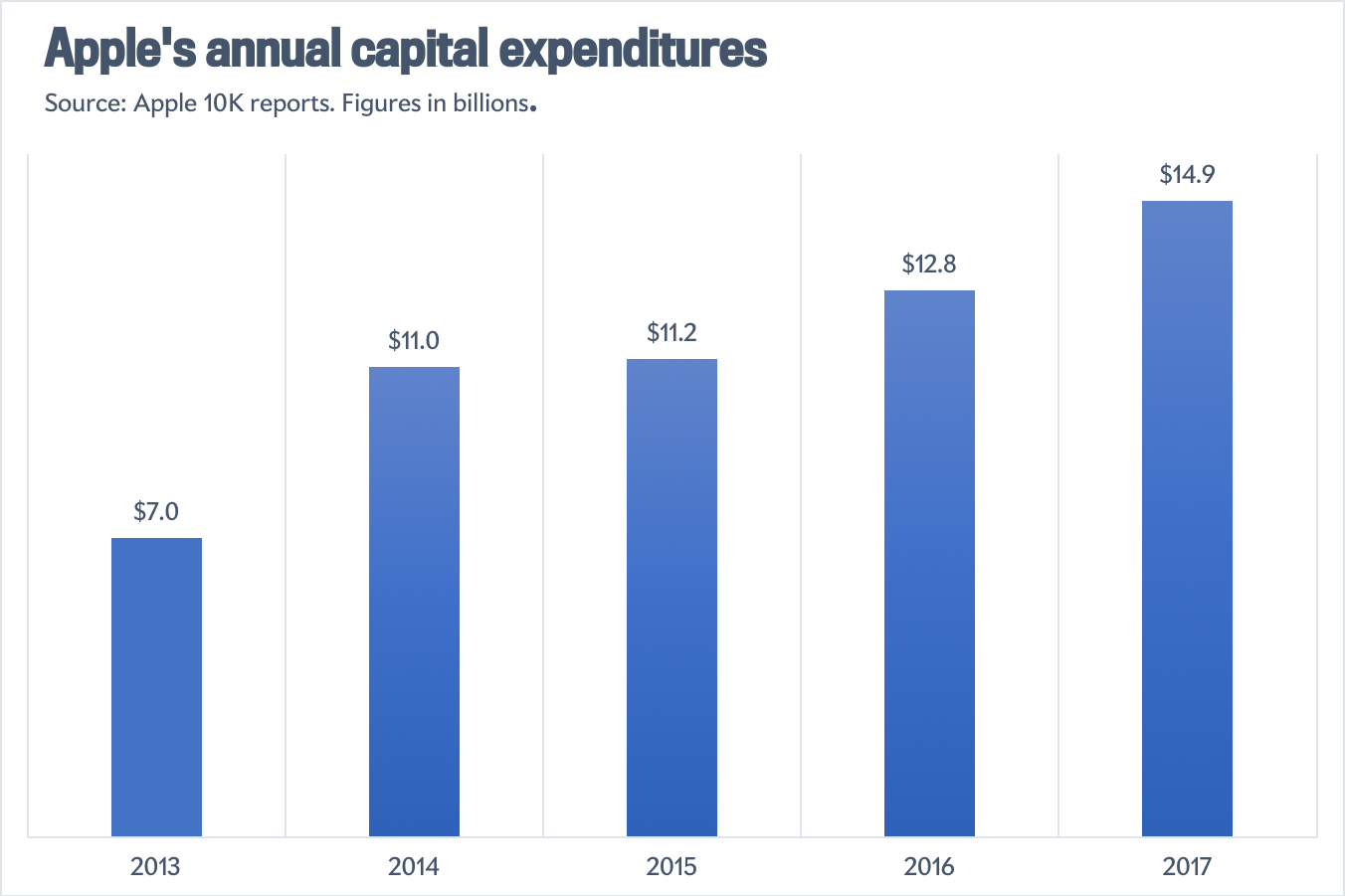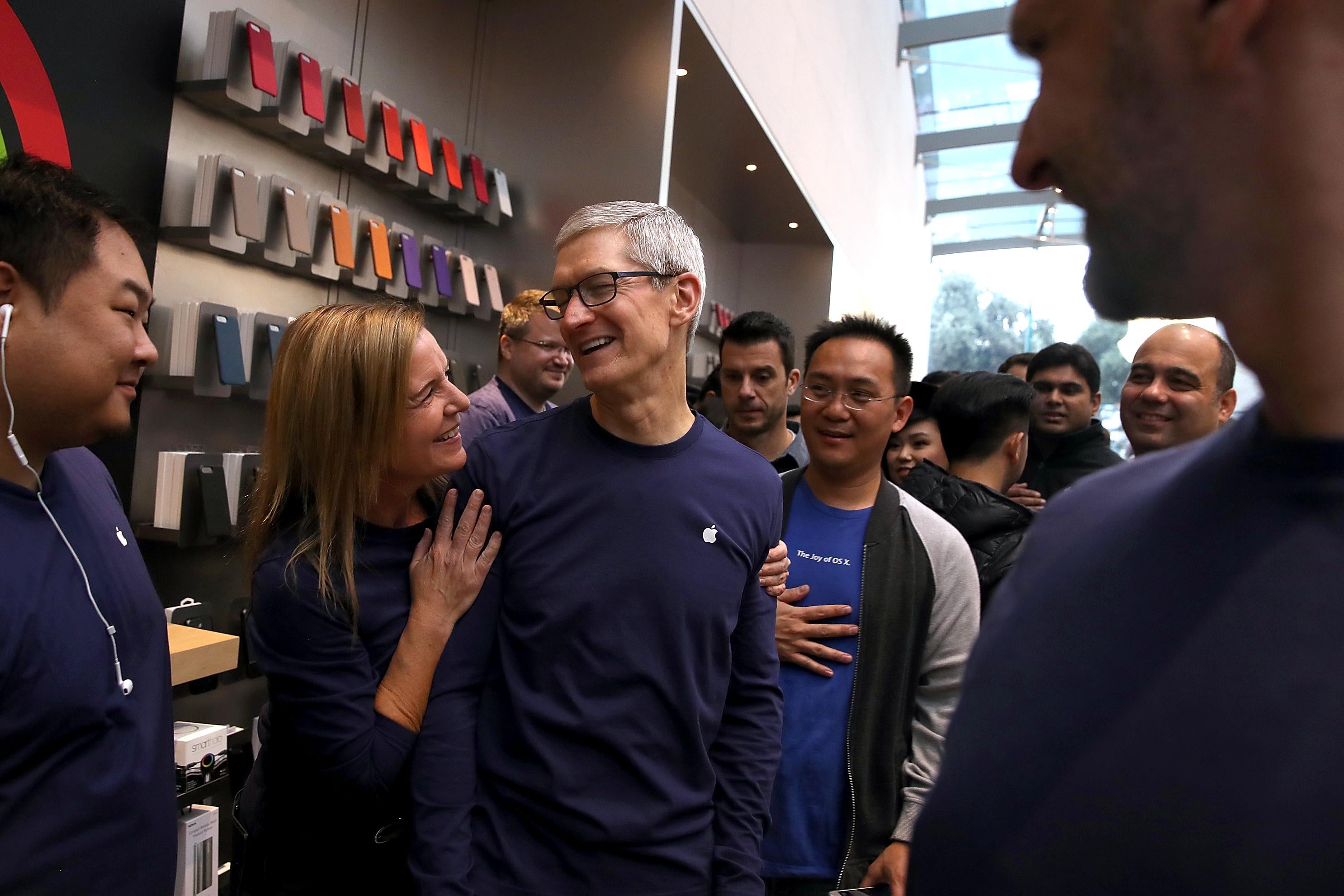On Wednesday afternoon, Apple posted a press release. The primary purpose of this statement, it seems, was to tell investors exactly how much money the company would have to pay in taxes on the profits it’s now repatriating from overseas, thanks to the Republican tax reform bill, while also announcing that it plans to build a new campus for tech support workers. But instead of simply reporting this information, Tim Cook’s media team decided to drop it in the middle of a long missive titled “Apple Accelerates U.S. Investment and Job Creation.” The iPhone maker promised to “contribute” $350 billion to the U.S. economy over the next five years while hiring 20,000 additional workers.
This has, of course, been catnip for conservative fans of the GOP bill. Fox Business predictably tweeted that Apple would create 20,000 jobs “due to tax reform.”
“This is huge folks. This is another big company. One of the biggest companies in America. Saying big time jobs, a lot of jobs coming back to America,” Fox Business anchor Charles Payne told his viewers, deploying some remarkably Trumpian syntax. “And they say it’s all because of tax reform.” CNBC also reported that Apple was increasing its U.S. investment “in part because of the new tax law,” which gave Nevada Senator Dean Heller an opportunity to gloat.
The punchline here is that Apple did not actually say that it is investing any additional money in the U.S. because of the tax law. That idea appears nowhere in the press release.
Here’s what’s actually going on. As part of its transition to a new system of International taxation, the Republican tax bill included a big, one-timed levy on all the profits U.S. corporations have been hoarding abroad for years. (This is known as a deemed repatriation.) Apple has been sitting on a giant overseas money hoard worth $252 billion. Today, we learned it would pay $38 billion to the IRS as the cost of bringing that cash home.
And what else did we learn? Not a ton. The press release predicts that between its “current pace of spending with domestic suppliers and manufacturers—an estimated $55 billion for 2018—Apple’s direct contribution to the US economy will be more than $350 billion over the next five years.” In other words, Apple will keep buying stuff from other U.S. companies. This is not a patriotic act of charity. Apple is literally saying it will continue business as usual. That alone accounts for $275 billion of its $350 billion forecast.
As for the rest of that total? In a mystifying bit of self-aggrandizement, the company is counting its $38 billion repatriation payment as another “direct contribution” to the U.S. economy. This is money they are required to pay by law. “A payment of that size would likely be the largest of its kind ever made,” the company helpfully notes. This is only true because Apple spent years making money hand-over-fist while doing everything in its power to avoid taxes.
Finally, we get to the company’s actual plans to invest in the U.S. Here, we learn that “Apple expects to invest over $30 billion in capital expenditures in the US over the next five years and create over 20,000 new jobs through hiring at existing campuses and opening a new one,” which will initially “house technical support for customers.”
The 20,000 jobs are nice. (Apple says it currently employs 84,000 U.S.) But there’s no evidence, contra Fox’s talking heads, that they’re coming “back to America” from anywhere. Meanwhile, it’s hard to tell if the $30 billion the company plans to spend would actually be a meaningful increase in its domestic U.S. investment. According to its annual reports, Apple has devoted $56.9 billion to capital expenditures worldwide over the past five years. Presumably, a good chunk of that was spent stateside, building out its retail network and its gleaming new Cupertino campus, for instance. But it’s hard to know how much. “The company has not given guidance in the past regarding where and how capital spending was allocated. This is the first I heard of a specific allocation,” Asymco analyst Horace Dediu told me in an email. So, maybe Apple really is “accelerating” it’s U.S. investment. Maybe it’s not. There’s no actual way to tell based on the information it’s shared publicly.

That brings us to the separate question of whether this spending has anything at all to do with Trump’s tax bill. The answer is almost surely not. Apple has long paid an extremely low tax rate, and it is only really bringing its overseas profits “home” on paper. In reality, the company has always been able to access that money by borrowing against it at dirt cheap rates, which it’s previously done to fund dividends and buybacks for its investors. The specific investments Apple announced today, such as the more than $10 billion it plans to spend on new data centers to support its growing cloud-based businesses like Apple Music, are things it likely would have needed to do not matter what happened in Washington.
“These are probably many capital expenditure initiatives and new site build-outs that Apple was already planning on doing regardless of repatriation,” Michael Olson, an analyst at Piper Jaffray, told Bloomberg.
Apple did not announce a $350 billion investment in the U.S. economy today. It’s not even clear Apple announced it was actually increasing its domestic investment. It certainly did not announce that it was creating jobs because of Trump’s economic magic. The company announced its tax bill and, in the same breath, made some promises about capital expenditures in the states. Then it let the press and conservatives fill in the blank. I guess it’s a clever strategy, if you’re quietly trying to pander to this White House.
